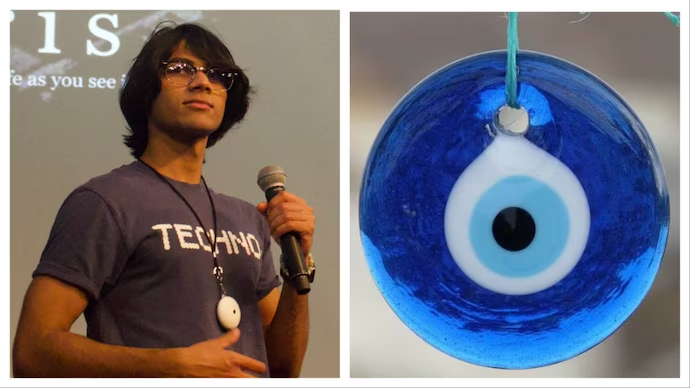Advait Paliwal, an Indian-origin entrepreneur, has introduced a groundbreaking wearable device named Iris, claiming it offers users an “infinite memory” of their lives. In a recent social media announcement, Paliwal shared insights into this AI-powered device, which he sported around his neck.
Iris is designed to capture a photograph every minute, storing these images either locally or on the cloud. Paliwal articulated the essence of the device, emphasizing its capability to document the minutiae of daily life—those fleeting moments often forgotten—and reveal patterns we typically overlook.
The device goes beyond mere image capture; it employs artificial intelligence to caption and organize the photographs into a coherent timeline, aiding wearers in recalling forgotten details. “Iris also features a focus mode that detects when a user is distracted, prompting them to refocus,” Paliwal elaborated.
In a detailed blog post, the San Francisco-based, Indian-born founder explained that the device’s design is inspired by the evil eye symbol. He shared that he spent the summer developing Iris at Augmentation Lab in Cambridge, an intensive two-month residency program for AI and hardware innovators. At the end of the program, Paliwal showcased Iris to an audience of over 250 people at the MIT Media Lab, receiving enthusiastic responses and piquing interest from potential users.
Paliwal underscored various safety and health applications of Iris. He suggested that the device could assist doctors in understanding patients’ daily habits, ensure compliance with safety protocols in workplaces, and provide non-intrusive monitoring for elderly care.
While the concept of “lifelogging” isn’t novel—Microsoft Research previously developed a camera to assist Alzheimer’s patients, and Google launched the AI-powered Google Clips in 2017—Paliwal acknowledged both the advantages and potential downsides of such technology. Google Clips, despite its innovative approach, struggled with accurate detection and was eventually discontinued.
Paliwal recognized that privacy concerns are a significant issue with the Iris device. “Iris could be a boon for people with memory impairments or those needing help to stay focused. However, it also raises substantial privacy concerns about how these recordings could be used,” he admitted. Ultimately, he stressed that the power rests with users to decide how and when to use the device.
The public had mixed reactions on social media, with some expressing discomfort at the idea of being frequently photographed. One person commented, “It’s an interesting concept, but I wouldn’t want to interact with someone who had this on, taking a photo every minute.” Addressing such concerns, Paliwal responded, noting that people are “constantly taking mental photos anyway.”
As Paliwal’s Iris seeks to revolutionize how we capture and recall daily life, it faces the timeless challenge of balancing innovation with privacy—a conversation that continues to evolve in our increasingly connected world.


